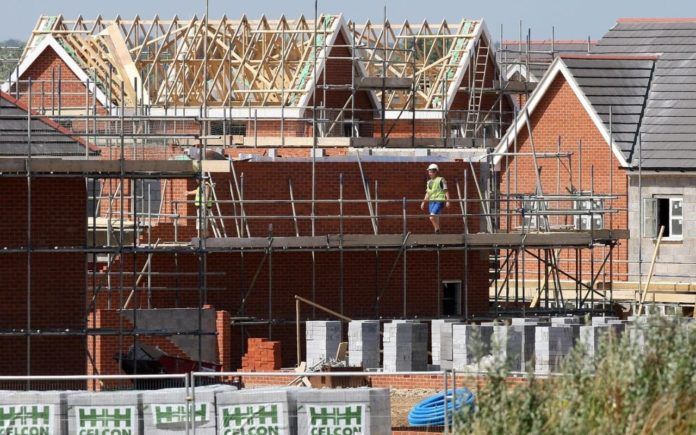Demand for new homes has reached its lowest level since 2014, according to small to medium-sized (SME) housebuilders.
The new figures, published today [10 September] in the Federation of Master Builders (FMB) House Builders’ Survey 2020, track the experience of SME housebuilders in England. The survey found that the planning system was the biggest constraint on SMEs building more homes, with almost half (48%) of respondents citing this issue.
Key findings of the House Builders’ Survey include:
• Buyer demand fell to its lowest levels in six years
• Forty-eight percent of respondents said that ‘the planning system’ was restricting their ability to build new homes. Anecdotal evidence suggests builders are typically waiting one year for a decision on a non-controversial planning applications
• Forty-six percent of respondents said they had concerns over a ‘lack of available and viable land’ to build on.
In a worrying development, access to finance has emerged as a growing concern for SMEs, with 41% saying that this is an issue for their company. Recent improvements in lending conditions over the past two years have been reversed, and the issue of loan refusal has seen the biggest jump in respondents citing this as a cause for concern.
When asked to look ahead over the next three years, 37% of SMEs are concerned about the impact of restricted mortgage availability and what this will mean for prospective house hunters.
Against this background, the FMB’s House Builders’ Survey sets out three key priorities for SME housebuilders over the year ahead:
• Boost resources for local authority planning departments – to help builders bring forward new sites, and lay the foundations for the government’s ambitious reforms to the planning system currently under consultation
• Improve flexibility in the government’s Home Building Fund – the survey found no SME housebuilders currently use this dedicated funding pot for small site development. This will help unlock additional new homes and deliver on the government’s target of building 300,000 new homes a year
• Extend the Stamp Duty Land Tax Holiday when it ends in March 2021 – to help sustain increased levels of buyer demand over the longer-term. This will maintain activity levels in the sector and help with job retention.
Brian Berry, chief executive of the FMB, said: “SME housebuilders are facing the dual challenge of weakening demand, and increasing constraints on their output. Taken in the context of Brexit uncertainty and the ongoing economic impact of the coronavirus, these conditions are hampering recovery in the housing market.”
Brian concluded: “The government needs to prioritise supporting recovery in the SME housebuilding sector. SME builders operate in every community in England and support the government’s levelling-up agenda. They build high-quality, sustainable, and beautiful homes in places where people want to live. Local builders also create local employment and training opportunities, as SMEs train almost three-quarters (71%) of the industry’s apprentices. The FMB is keen to work with the government and the industry to reverse the decline in the SME housebuilding sector and create a more diversified and resilient industry.”




